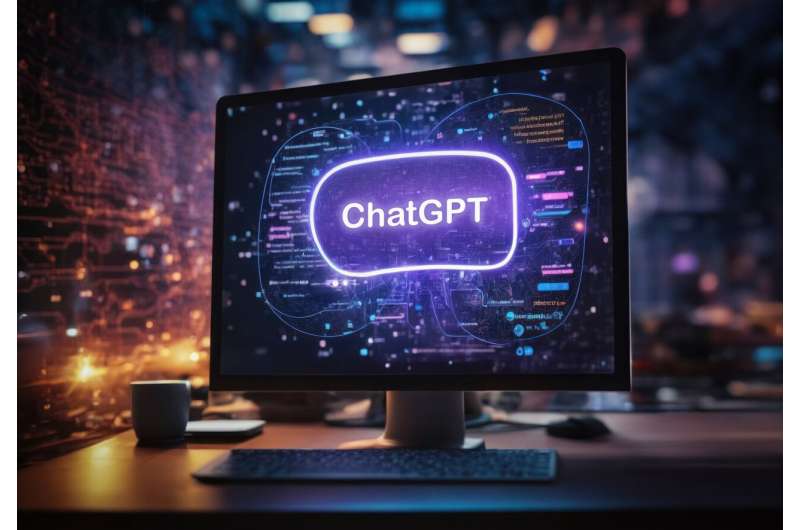This article has been reviewed according to Science X's editorial process and policies. Editors have highlighted the following attributes while ensuring the content's credibility:
fact-checked
trusted source
proofread
Cybersecurity and data protection: Does ChatGPT really make a difference?

An analysis published in the Journal for International Business and Entrepreneurship Development has looked at the various approaches to cybersecurity and data protection taken by key global players, namely the European Union (EU), the United States of America (U.S.), and China.
As nations address historical data concerns and evolving cyber threats, the practical implications for businesses and individuals are significant. In this context, they consider the impact of the emergence of large language models (LLMs), such as ChatGPT, often, and perhaps erroneously, referred to as artificial intelligence (AI) tools.
Cybersecurity and data privacy have become central concerns, affecting business operations and user safety worldwide. The EU's General Data Protection Regulation (GDPR) stands out as one of the more well-known and effective cyber strategies that have nudged businesses to strengthen cybersecurity measures and improve data management practices for compliance and consumer trust.
In contrast, the U.S. currently lacks a unified legislative framework for cybersecurity, relying instead on various regulations many of which are rather outdated in the digital landscape as it stands. Nevertheless, the U.S. does maintain high levels of preparedness against cyberattacks through legal, technical, and organizational measures.
China, on the other hand, has taken a stringent and strident position on cybersecurity and data protection, balancing the safeguarding of its citizens with strict regulations. These, of course, have raised concerns in many quarters about individual rights.
In their paper, Teddy Lynn Ladd of Wipro Enterprise Futuring in Plano, Texas, Shawn M. Carraher of KFUPM in Dhahran, KSA, Sherry E. Sullivan of BGSU, Bowling Green, Ohio, and Shawn M. Carraher Jr. of TAMU in Commerce, Texas, U.S., suggest that LLMs have an important role to play.
These tools offer a new way to understand and navigate the complex current regulations and future legislation, which could help organizations in their compliance efforts as well as improve cybersecurity for those organizations, governments, and individuals.
LLMs might be prompted to help in the interpretation of regulations and provide assistance in developing proactive rather than reactive strategies to address the challenges involved in compliance and cybersecurity. They might even be useful in allowing organizations to surmount the financial burdens and resource constraints, particularly for multinational corporations, that are necessitated by the need for cybersecurity and regulatory compliance.
More information: Teddy Lynn Ladd et al, in the European Union, the USA, and China: does ChatGPT really make a difference, J. for International Business and Entrepreneurship Development (2024). DOI: 10.1504/JIBED.2023.136751















